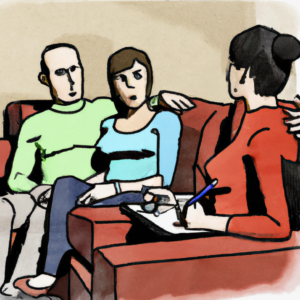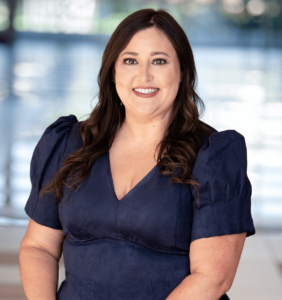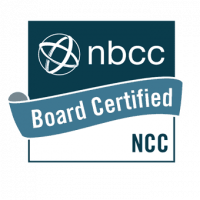A Complete Guide to Couples Counseling

Click below to schedule your free couples consultation
Table of contents
- What is marriage counseling?
- Is online therapy for couples effective?
- Your best couples counselor
- How does relationship counseling work?
- What to expect during couples sessions
- Couples therapy success rate
- Do couples need individual therapy?
- What causes relationship counseling to fail?
- How couples get started with counseling?
- Is couples therapy required for a divorce?
Couples counseling can be a transformative experience for both partners, helping them navigate the ups and downs of their relationship and build a stronger, more fulfilling connection. As a therapist, guiding couples through this process can be incredibly rewarding, but it also requires skill, patience, and a deep understanding of the unique challenges that couples face. In this guide, we’ll explore the principles and techniques that can help therapists facilitate transformation and support their clients on the journey to a healthier, happier relationship.
What is the success rate of couples in counseling?
Couples therapy has been a topic of great interest over the past few decades as it has undergone significant changes. Marital counseling approaches in the past had a difficult time producing positive results, with their effectiveness rate being less than 50%. To make matters worse, any improvements that were seen tended to fade quickly. Fortunately, new approaches to marriage counseling such as the highly acclaimed Gottman Approach have been developed, resulting in considerably better outcomes for couples. Indeed, according to our own findings and other statistics, couples who have completed up-to-date couples therapy programs have achieved an impressive overall success rate of over 98%. As a result of these promising developments and other factors, it is observed that the divorce rate in the United States has been on a steady decline since reaching its peak in 1981. So if you find yourself asking the question “does couples counseling work?” It is evident that couples counseling really does work. It can be very instrumental, and has indeed contributed to saving and strengthening a marriage.
Most common reasons couples seek counseling
Intimate relationships can be complex, and even the strongest partnerships can experience challenges. At NorthStar Counseling & Therapy, we offer couples therapy in a safe and supportive space where partners can explore their relationship dynamics and learn to understand each other better. Each couple’s story is unique, and the reasons for seeking couples therapy are as diverse as love itself. Despite the many reasons why couples seek therapy, a few of the most common challenges we see recurring continually in our community include:
- Infidelity or affairs
- Communication breakdown and conflict
- Financial difficulties
- Growing apart over time
- Issues with sex and intimacy
Rated Best Couples Counselor in Frisco, TX & Sartell, MN

MS, LPCC, LPC, NCC – Rated Frisco’s Best
Licensed Professional Clinical Counselor / Therapist, Nationally Certified Counselor
As a trained therapist with over 15 years of experience, I am dedicated to helping couples improve their relationship and achieve their goals. With my personalized approach and focus on building trust and communication, I can help you and your partner develop a stronger, healthier bond. Contact me today to schedule your first session and start your journey towards a better relationship.
Appointments available online via telehealth. Frisco, TX 75033
One thing to note regarding why couples seek therapy is that there are a variety of reasons beyond the obvious communication issues or infidelity concerns. Many couples might face challenges stemming from family dynamics, whether that involves navigating conflicts with in-laws or blending family units together. Additionally, health problems – be they physical or mental in nature – can also put stress on a relationship, leading to the possibility of seeking counseling. There might be disagreements over relationship roles and responsibilities, such as managing household duties or differing approaches to parenting that could benefit from the help of a therapist. Further, differing beliefs and values, including disparities related to cultural or religious backgrounds, can also create challenges that couples seek to address through therapy. Work-related stress is another common factor that people turn to therapy for support with, particularly when work schedules and demands clash. Ultimately, seeking counseling as a couple can help address these issues, with the aim of improving the relationship and preventing a potential split.
How to improve your intimacy with counseling
Discover the implications of a lack of intimacy in a relationship. While intimacy often brings to mind physical closeness, it’s a multifaceted cornerstone of a flourishing romantic bond, weaving together emotional, intellectual, and spiritual ties between partners. Yet, as couples navigate life’s complexities, personal evolutions, and occasional misunderstandings, this vital spark can, at times, flicker and wane
Couples counseling can serve as a powerful catalyst for rekindling this closeness. Through guided sessions, couples can:
Reconnect Emotionally: Therapists provide a safe space for partners to express their emotions openly and without judgment. By sharing their fears, desires, and hopes, couples can deepen their emotional bond.
Heal from Past Traumas: Hidden traumas or past experiences can create barriers to intimacy. Addressing these head-on, with professional guidance, can help clear the path for a closer connection.
Improve Communication: Effective communication is essential for intimacy. We can help partners hone their communication skills, ensuring that they can share and receive messages in a way that fosters closeness.
Discover Shared Activities: Engaging in shared activities or hobbies is a wonderful way to bond. We’ll suggest new activities or help couples rediscover old ones that they can enjoy together, leading to moments of shared joy and increased intimacy.
Learn About Physical Closeness: While intimacy is not solely about physical connection, it certainly plays an important role. We can help partners learn about each other’s physical needs, boundaries, and preferences, ensuring that physical closeness complements their emotional bond.
In essence, this can be a transformative experience that not only addresses existing issues but also strengthens the bonds of intimacy. With commitment and open-mindedness, couples can reignite the spark and cherish a closeness that endures over time.
Additional Tips for Enhancing Intimacy
- Make time for each other. In the hustle and bustle of everyday life, it’s easy to neglect your relationship. Schedule regular date nights or simply make time to connect and talk without distractions.
- Be intentional about your communication. Make an effort to listen to your partner actively and to share your own thoughts and feelings honestly. Avoid using hurtful words or criticism.
- Be physically affectionate. Touch is a powerful way to connect with your partner. Hug, kiss, and cuddle regularly.
- Explore your sexual desires together. Talk about your fantasies and needs, and experiment with new things.
- Seek professional help if needed. If you’re struggling to enhance intimacy on your own, a trained couples counselor can provide valuable guidance and support.
In essence, therapy can be a transformative experience that not only addresses existing issues but also fortifies the bonds of intimacy. With commitment and open-mindedness, couples can reignite the spark and cherish a closeness that stands the test of time.
What is marriage counseling?
In many times, couples counseling is also referred to as marriage counseling (which you may find insightful to explore further in this fascinating article “How Marriage Counseling Can Restore Your Relationship“), is a form of psychotherapy that is centered on assisting couples to navigate through conflicts and improve their relationship. With counseling, couples confronted with relationship issues can work through their difficulties and mend their bond. Typically, this process is facilitated by a competent, certified counselor who specializes in working with couples. By addressing the issues head-on in a safe and supportive environment, couples can recover and enhance their emotional connection, leading to more profound intimacy and a more fulfilling relationship. So if you are considering taking steps to address any challenges, know that counseling can be an effective tool in strengthening your relationship.
Is online counseling for couples just as effective?
In today’s rapidly evolving digital landscape, online therapy has become more than just an alternative; it’s a preferred choice for many. According to the American Psychological Association, the utilization of telehealth services has seen a noteworthy increase in recent years. This isn’t solely a product of our digital age’s convenience. Intriguingly, multiple studies suggest that for a significant portion of couples, online counseling might offer superior benefits compared to traditional face-to-face sessions. A pivotal factor behind this is the natural alignment of key therapeutic techniques with online mediums.
1. Cognitive Behavioral Therapy (CBT): CBT‘s framework is both structured and pragmatic, making it a natural fit for online platforms. In an online environment, couples have the opportunity to engage in exercises, reflect, and even review sessions — a feature often not available with in-person meetings. Digital CBT sessions allow for real-time engagement, immediate application of techniques, and often, the use of interactive tools and apps that support the therapy process. Published research further bolsters the effectiveness of digital CBT, suggesting outcomes that are either on par with or even surpass those of in-person sessions.
2. Emotionally Focused Therapy (EFT): EFT delves into the heart of relationships: emotional connections. When couples participate in online EFT sessions, there’s a unique layer of intimacy. Engaging from a personal space, be it their living room or bedroom, can often facilitate a deeper, more genuine exploration of emotional dynamics. This very essence of EFT, which seeks to nurture and fortify emotional bonds, is therefore enhanced. The digital format, far from being an impediment, can actually fortify the principles of EFT, fostering better understanding and stronger emotional ties.
3. Solution-Focused Brief Therapy (SFBT): SFBT is built around the concept of swift, positive change. The digital nature of online therapy, with its inherent flexibility, complements this approach perfectly. Digital platforms offer the feasibility of more frequent interactions, which means couples can benefit from regular touchpoints, ensuring momentum in their progress. As the name suggests, SFBT is about harnessing solutions, and the ready accessibility of online sessions makes this process even more streamlined and effective.
Concluding with a broader perspective, the foremost advantage of online therapy is its ability to demolish traditional barriers—be it geographical constraints, time, or even the discomfort some may feel in unfamiliar settings. A study published in the Journal of Clinical Psychology underlines this, revealing that many telehealth participants reported heightened satisfaction levels. They felt the digital medium provided a more relaxed environment, making it easier to broach sensitive topics. As we navigate the intricacies of the digital era, it becomes evident that leveraging technology in therapy is not merely about accessibility; it’s about optimizing the therapeutic experience, ensuring couples have every tool at their disposal to build stronger, more enduring relationships.
How does relationship counseling work?
Relationship counseling offers a platform for couples to navigate challenges and strengthen their bond. It involves a specialized approach tailored to the unique dynamics of every relationship. Here’s a more comprehensive look at how it operates:
- Guided Discussions The essence of relationship therapy is facilitating open dialogue. Therapists, like Megan, create an environment where both partners feel heard and understood. By structuring conversations, therapists ensure that both parties express their feelings, fears, and desires without falling into the common pitfalls of blame or defensiveness.
- Building Trust Trust, once broken, is challenging to restore. Relationship counseling provides tools and exercises that help rebuild and strengthen this crucial foundation. Whether trust was eroded due to infidelity, misunderstandings, or other breaches, therapy aims to repair and fortify this bond.
- Enhancing Emotional Connection Beyond communication, emotional intimacy is the bedrock of any strong relationship. Counseling sessions often delve into the emotional disconnects that might exist, guiding couples towards rediscovering their bond and reigniting the affection and appreciation they once shared.
- Conflict Resolution Techniques Disagreements are inevitable in any relationship. However, it’s the manner in which they’re handled that determines their impact. Therapists introduce and practice conflict resolution skills, ensuring that disagreements become opportunities for growth rather than sources of discord.
- Individual Growth for Collective Benefit While the focus is on the relationship, individual growth and self-awareness are often emphasized. By understanding one’s triggers, emotional needs, and patterns, individuals can contribute more positively to the relationship.
- Setting Goals and Future Planning Counseling isn’t just about addressing present challenges. It also involves setting goals for the future. Whether these are related to family planning, financial objectives, or personal growth, having a roadmap ensures the relationship continues to evolve and flourish.
- Support and Accountability One of the significant benefits of relationship counseling is the continuous support and accountability it offers. Regular sessions serve as checkpoints, ensuring that couples remain on track, celebrate their progress, and address any new challenges head-on.
In essence, relationship counseling serves as a compass, helping individuals and couples find their way through the complexities of love, trust, and partnership. It’s an investment in the future, ensuring that the relationship not only survives but thrives.
What to expect during your counseling sessions as a couple
NorthStar Counseling & Therapy can be a lifeline for you as a couple navigating the choppy waters of a romantic relationship. It’s a safe space to explore your relationship dynamics, learn to communicate more effectively, and resolve conflict in a healthy way. Therapy as a couple isn’t about surrendering to defeat; it’s a testament to your commitment to each other and your desire to build a stronger relationship.
During your counseling sessions with us, you can expect to:
- Identify the root causes of your relationship problems. Your therapist will help you to understand the underlying factors that are contributing to your conflict.
- Develop new communication skills. Your therapist will teach you how to communicate your needs and wants in a clear and assertive way, and how to listen to each other with empathy and understanding.
- Learn to resolve conflict constructively. Your therapist will help you to develop strategies for resolving conflict in a way that is fair and respectful to both partners.
- Build a stronger connection. Your therapist will help you to identify and nurture the strengths of your relationship, and to overcome the challenges that you face together.
Our expectation of you during therapy sessions is:
- Active Participation: Your therapeutic journey will demand active engagement from both parties. It’s not a passive experience; every session becomes an opportunity to learn, unlearn, and relearn.
- Openness: To make the most of this journey, vulnerability becomes a strength. Opening up about fears, desires, and concerns allows for authentic discussions, bridging gaps that might have previously seemed insurmountable.
- Dedication: Consistency and dedication are the pillars that ensure the therapy bears fruit. It’s akin to attending a workshop for personal development; the more you invest in it, the greater your returns.
Some of the engaging exercises you may be asked to do in session are:
- Communication exercises are essential in helping couples improve their communication skills. Examples of these exercises may include role-play scenarios where each partner listens and responds to the other’s concerns, using “I” statements instead of “you” statements when expressing thoughts or feelings, and actively listening to each other without interrupting or assuming what the other is saying.
- Role-playing exercises involve couples taking on different roles and practicing how to handle difficult situations in a positive and effective way. For instance, the couple may role-play a scenario where one partner expresses their emotions about a particular issue, while the other partner listens actively and validates their feelings. The exercise helps to promote effective communication, active listening, and empathy.
- Problem-solving exercises may involve couples working together to identify solutions to specific issues or challenges that they are facing in their relationship. For example, the counselor may guide them through a process of brainstorming potential solutions, evaluating the pros and cons of each, and creating a plan to move forward. This exercise helps to promote effective problem-solving, compromise, and collaboration.
- Emotional awareness exercises may involve helping couples identify their emotions and learn how to express them in a healthy and constructive way. For example, the counselor may guide them through exercises such as mindfulness meditation, deep breathing, or journaling to help them become more aware of their emotions and how to regulate them. This exercise helps to promote emotional intelligence, self-awareness, and self-regulation.
- Trust-building exercises may involve couples engaging in activities that help build trust and deepen their emotional connection. For example, the counselor may guide them through exercises such as sharing personal experiences or feelings, practicing vulnerability, or engaging in activities that require mutual trust and cooperation. This exercise helps to promote openness, honesty, and a sense of safety and security in the relationship.
Homework assignments: The counselor may assign homework to help the couple practice new skills or behaviors that were discussed during the counseling session. For example, the couple may be asked to practice active listening or expressing their emotions in a healthy way.
Communication exercises: The counselor may assign communication exercises for the couple to practice at home. These may involve activities such as writing love letters to each other, taking turns to talk and listen to each other, or practicing nonverbal communication.
Journaling: The counselor may ask the couple to keep a journal to document their thoughts and feelings about their relationship. This can help the couple gain insight into their relationship and can be a useful tool for tracking progress.
Date nights: The counselor may suggest that the couple plan regular date nights as a way to strengthen their relationship. This can involve engaging in activities that they both enjoy, such as cooking together or going for a walk.
Practice relaxation techniques: The counselor may suggest that the couple practice relaxation techniques, such as deep breathing or mindfulness, to reduce stress and improve emotional regulation.
The choice to seek therapy, while daunting, is a testament to the commitment partners have towards forging a deeper bond. This journey, rather than being a mere solution to immediate concerns, is an intentional commitment to understanding each other better. By delving deep into vulnerabilities, hopes, and fears, partners learn not just to address current challenges but also to lay a robust foundation for the future.
Throughout this therapeutic endeavor, partners acquire invaluable tools and insights, which equip them to navigate relationship challenges with mutual respect and grace. Effective communication, healthy conflict resolution, and building a fortified emotional connection become integral components of their relationship toolkit.
Yes, therapy can present its challenges, and it requires both courage and effort. But the rewards are profound. With dedication, a relationship emerges from this journey not just intact but invigorated—stronger, healthier, and more equipped to face future trials together. It’s about creating a relationship where open communication, mutual respect, and deep understanding are the norms, and where partners work cohesively to craft a fulfilling shared future.
For those pondering the decision, seeking the expertise of a qualified couples counselor and therapist can be transformational. It’s more than just mending bridges; it’s about constructing a resilient relationship that not only survives, but thrives amidst life’s complexities.
Individual therapy can help you as a couple
The journey to a harmonious and resilient relationship often begins with introspection. While couples therapy focuses on the dynamics between partners, individual therapy dives deeper into the personal experiences, beliefs, and patterns that each partner brings into the union. By addressing these elements separately in an individual setting, a clearer picture emerges of how personal histories play out in the shared relationship narrative.
Every individual comes into a relationship with a unique set of experiences and baggage. These can range from past traumas and childhood experiences to ingrained behavioral patterns and coping mechanisms. While some of these attributes enrich the relationship, others might unintentionally cause strain or misunderstanding. Individual therapy provides an invaluable opportunity for introspection and personal growth, which directly influences the health of the relationship.
Furthermore, as individuals cultivate emotional intelligence and self-awareness, they become better equipped to express their needs, understand their partner’s perspectives, and navigate conflicts more constructively. This personal evolution ensures that when both partners come together in couples therapy, they are not only working on their collective challenges but are also leveraging their individual growth to forge a stronger, more harmonious bond.
In essence, the combination of individual counseling services and couples therapy offers a holistic approach to relationship healing and growth, addressing challenges at both personal and interpersonal levels.
What prevents couples therapy from being effective?
The efficacy of therapy often rests on the foundation of openness, commitment, and the desire for positive change. Just as the adage goes, “You can lead a horse to water, but you can’t make them drink,” therapeutic interventions require both partners to be willing participants. Without a genuine desire for growth and understanding, even the best therapeutic techniques may fall short. Some common obstacles that may prevent therapy from reaching its full potential include:
- Reluctance to Engage: A key barrier can be a half-hearted approach. When partners aren’t equally committed to the process, breakthroughs are harder to achieve. A partner who is present in body but not in spirit may hinder the progress for both.
- Dysfunctional Communication Patterns: Deep-rooted negative communication habits can cloud clarity during sessions. Without the ability to convey feelings effectively or listen with empathy, achieving mutual understanding becomes a challenge.
- External Strains: External challenges such as substance abuse, unresolved personal traumas, or other mental health concerns can overshadow the relationship issues and stall the therapeutic journey. These need to be addressed either alongside or before diving deep into relational issues.
- Misaligned Expectations: A misconception that therapy is a magic wand can set couples up for disappointment. Real change requires patience, time, and effort. Understanding that therapy provides tools rather than instant solutions is essential.
- Therapist Compatibility: The bond between therapist and client is intricate and vital. If any partner senses a disconnect or lacks trust in the therapist, it can hinder progress. It’s essential to find a therapist that both partners feel aligned with. However, it’s worth noting that sometimes initial resistance arises not from a true mismatch but from discomfort with the insights being presented. A competent therapist will skillfully build rapport and trust, guiding couples to discernment and understanding.
In sum, while relationship therapy has the potential to mend bridges and rejuvenate bonds, its success is contingent upon various factors. Recognizing and addressing these barriers can pave the way for a more fruitful therapeutic journey.
Does Texas require counseling before getting a divorce?
No, Texas does not require counseling before getting a divorce. However, the Texas Family Code does allow the court to direct both parties in a pending divorce to meet with a couples counselor. This is rare, but it can happen if the judge believes that counseling could help the couple save their marriage.
Why couples may want to get counseling before seeking a divorce
There are many reasons why couples may want to get counseling before seeking a divorce. Some of the most common reasons include:
- To try to save their marriage. Counseling can help couples to improve their communication, resolve conflict, and build a stronger connection. If both partners are willing to work hard, getting therapy as a couple can be very effective in helping saving their marriage.
- To make the divorce process easier. Even if couples decide that they want to get a divorce, counseling can help them to make the process easier and less stressful. Counseling can help couples to communicate more effectively, negotiate agreements, and co-parent effectively.
- To learn how to cope with the emotional and practical challenges of divorce. Divorce can be a very difficult experience, both emotionally and practically. Counseling can help couples to learn how to cope with the stress of divorce, make decisions about child custody and finances, and adjust to their new life as single parents.
If you and your partner are considering divorce, I encourage you to consider getting counseling before you file. Counseling can help you to make the best decision for your relationship and your family.
Here are some additional benefits of getting counseling before getting a divorce:
- It can help you to understand the reasons for your marital problems and how to address them.
- It can help you to develop a plan for the divorce process and to communicate effectively with each other.
- It can help you to protect your children from the negative effects of divorce.
- It can help you to create a new relationship with your ex-spouse that is based on respect and communication.
Even if you are certain that you want to get a divorce, counseling can still be helpful by making the process easier and less stressful for both of you.
How to get started with couples counseling?
Taking the step toward couples counseling can be both exciting and nerve-wracking. If you and your partner have decided that it’s time for a therapeutic intervention, congratulations—you’re taking a proactive step toward a more meaningful connection.
Here is a straightforward guide on how to get started:
- Schedule an initial consultation: NorthStar Counseling and Therapy offers a free 15 minute initial consultation or “meet and greet” session for couples to get to know their therapist and ask any questions they may have about the counseling process.
- Set your objectives for therapy. What do you hope to achieve? Do you want to improve your communication? Resolve conflict in a healthier way? Build a stronger emotional connection? Once you know what you want to achieve, you can start to work with your therapist to develop a plan to get there.
- Be honest and open with your therapist. The more honest and open you are with your therapist, the more effective therapy will be. This means being willing to talk about your thoughts, feelings, and experiences, even if they are difficult or embarrassing.
- Be willing to work hard. This is not going to be a quick fix. It takes time and effort to change the patterns of interaction that have led to your relationship problems. Be prepared to do the work, and don’t get discouraged if you don’t see results immediately.
- Be patient and consistent. Meaningful change takes time. Don’t expect to fix all of your relationship problems in a few sessions. Be patient with yourself and your partner, and keep at it.
Here are some additional tips for getting the most out of couples counseling sessions:
- Come to each session prepared. Think about what you want to talk about and what goals you have for the session. This will help you make the most of your time with your therapist.
- Be respectful of each other. This is and should be a safe space to express your thoughts and feelings. It is important to be respectful of each other, even when you disagree.
- Be willing to compromise. Just like life in general, it is not always about winning or losing. It is about finding solutions that work for both of you. Be willing to compromise and meet your partner halfway.
- Don’t give up. This can be challenging, but it is worth it. If you are committed to making your relationship better, don’t give up. Keep working at it, and you will eventually see results.
Couples counseling can be a powerful tool for building a stronger and more resilient relationship. If you and your partner are considering couples counseling, I encourage you to take the step. It is an investment in your future happiness and the future health of your relationship.
NorthStar Counseling & Therapy offers a free 15 minute consultation for individuals and couples. You will get a chance to meet your therapist and ask any questions you may have at that time.

Owner, Clinician, Wife & Mom








